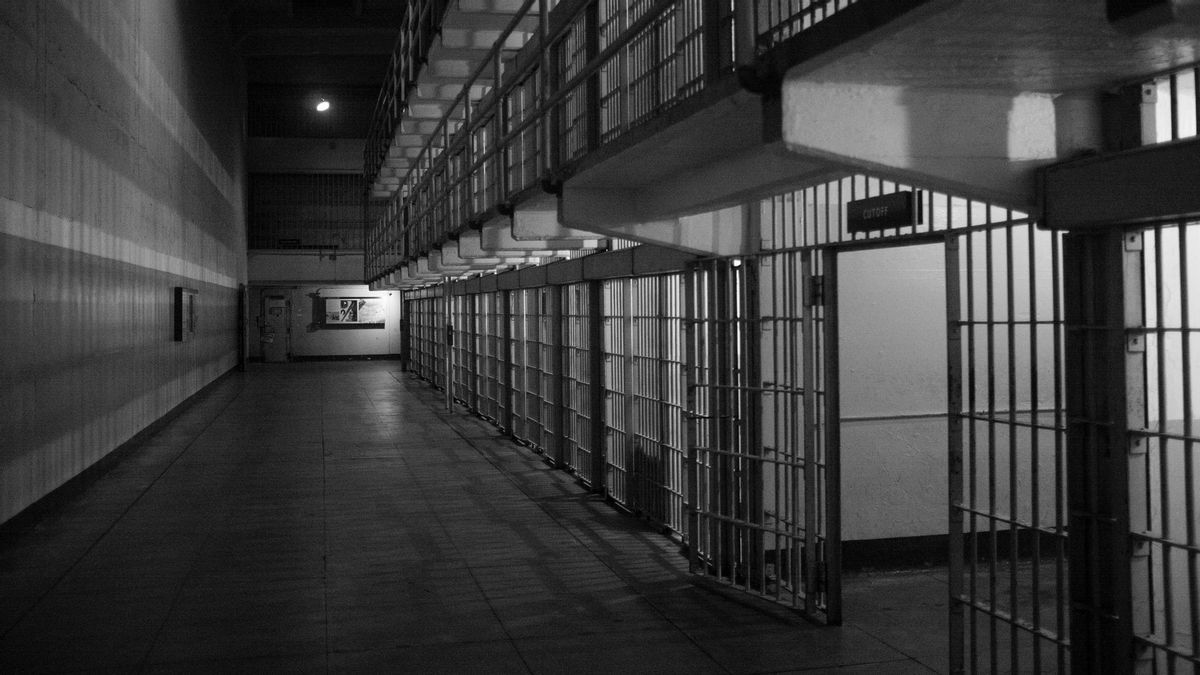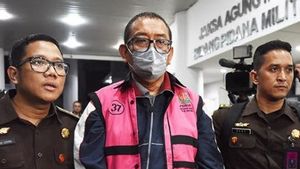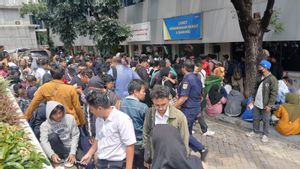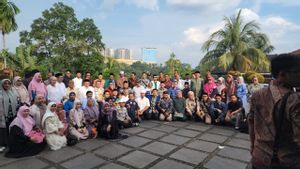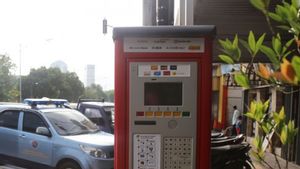JAKARTA - Minister of Law and Human Rights Yasona Laoly through the Director General of Corrections Reynhard Silitonga said that the assimilated prisoners who returned to act were only 0.2 percent of the total 38,882 prisoners. In addition, the number of recidivists in Indonesia is lower when compared to other countries.
For that, the public does not need to worry about the assimilation policy. Moreover, correctional institutions (prisons) are places to foster criminals to behave better, not just places to give punishment.
University of Indonesia criminologist Adrianus Meliala agreed with an assimilation program that aims to prevent the spread of COVID-19 in prisons and detention centers. Based on his data, only 55 prisoners returned to acting up and all of them have been prosecuted by the police.
"You could say that (the assimilation was successful). What is certain is that Indonesia's profile (recidivist figures) is no different from the world profile," Adrianus told VOI, Friday, May 8.
However, Adrianus said that the public was still worried about the presence of assimilated prisoners in their midst. This worry, said Adrianus, was due to the society's paradigm of prisoners. Those who have served time in prison are always viewed negatively by the community.
"People have always viewed prisoners as criminals who will not recover. After leaving the prison, they are still labeled as criminals. There are still suspicions everywhere. So, it is only natural that now," said Adrianus.
Meanwhile, another Criminologist from the University of Indonesia, Ferdinand Andi Lolo, said that people's sense of security cannot be measured by the number of prisoners who returned to acting up.
In fact, there is a possibility that 0.2 percent of the prisoners were only recorded or they could be said to have been caught when they acted. So, there is a possibility that the number could be more than that.
"The figures mentioned are recorded crimes, for example through notification, it is not impossible that there will be undetected," said Ferdinand.
For that, Ferdinand suggested, Kemenkumham improve or change the method of monitoring these assimilated prisoners. That way, when there is an assimilation program at the next opportunity, no prisoner will mess up by repeating the criminal offense.
"The sense of security of the community is not measured by statistics. Kemenkumham is better off looking for the factors that cause the recurrence of crimes, and improving its monitoring methods," said Ferdinand.
Assimilation from KemenkumhamKemenkumham released some prisoners and children to prevent the spread of the corona virus or COVID-19. The release of some of the prisoners will go through assimilation and parole.
This is in accordance with the decree number M.HH -19.PK.01.04.04. The year 2020, which contains the release and release of prisoners and children through assimilation and integration, is an effort to prevent and rescue prisoners and children who are in Corrections, Special Guidance Institutions for Children, and State Detention Centers from the spread of COVID-19.
However, there are several provisions or other rules for prisoners and children who will be released through assimilation. First, for inmates who have two-thirds of their sentence falls on December 31, 2020 and then for children who have half the sentence falls on December 31, 2020.
The second requirement, namely, that the prisoner and child are not bound by Government Regulation Number 99 of 2012 concerning Terms and Procedures for the Implementation of the Rights of Correctional Assistance and are not undergoing a subsidiary, and are not foreign citizens.
Meanwhile, the provisions for prisoners and children who are released by means of integration, namely parole, parole and leave prior to freedom are prisoners who have served two-thirds of their sentence. Meanwhile, children are those who have served half of their sentence.
The English, Chinese, Japanese, Arabic, and French versions are automatically generated by the AI. So there may still be inaccuracies in translating, please always see Indonesian as our main language. (system supported by DigitalSiber.id)
